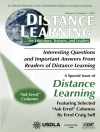This volume offers practical, detailed guidance and case studies on how to avoid exacerbating inequalities while researching gender-based violence and other related issues in Africa.
Wartime violence and its aftermath present numerous practical, ethical, and political challenges that are especially acute for researchers working on gender-based and sexual violence. Drawing upon applied examples from across the African continent, this volume features unique contributions from researchers and practitioners with decades of experience developing research partnerships, designing and undertaking fieldwork, asking sensitive questions, negotiating access, collecting and evaluating information, and validating results. These are all endeavors that also raise pressing ethical questions, especially in relation to retraumatization, social stigma, and even payment of participants.
Ethical and methodological questions cannot be separated from political and institutional considerations. Systems of privilege and marginalization cannot be wished away, so they need to be both interrogated and contested. This is where precedents and power relations established under colonialism and imperialism take center stage. Europeans have been extracting valuable resources from the African continent for centuries. Research into gender-based violence risks being yet another extractive industry. There are times when committed individuals can make valuable contributions to a more equitable future, but funding streams, knowledge hierarchies, and institutional positions continue to have powerful effects.
Accordingly, the contributors to this volume also concentrate upon the layered effects of power and position, relationships between researchers, organizations, and communities, and the political economy of knowledge production; this brings into focus questions about how and why information gets generated, for which kinds of audiences, and for whose benefit.
Tabla de materias
Introduction: Research as More Than Extraction? Sexual Violence, Fieldwork, and Knowledge Production, by Joel Quirk, Annie Bunting, and Allen Kiconco
PART ONE: ETHICAL AND METHODOLOGICAL DILEMMAS
Chapter 1: The Ethical Dilemmas and Realities of Doing Research in Conflict and Postconflict Settings, by Teddy Atim
Chapter 2: Reflections on a Collaboration between a European Doctoral Student and a Congolese Assistant Interpreter, by Sylvie Bodineau and Appolinaire Lipandasi
Chapter 3: Research with Children Born of War: A Sensitive and Ethical Methodology, by Beth W. Stewart
Chapter 4: Sheltering Survivors and Localizing Research Ethics in Northeast Nigeria, by Lawan Balami and Umar Ahmad Umar
Chapter 5: Research with Formerly Abducted Mothers and Fathers in Postconflict Northern Uganda: A Plea for Transparency, by Leen De Nutte
Chapter 6: Slavery and Its Meanings in the British World: Historiography, Knowledge Production, and Research Ethics, by Ana Stevenson and Rebecca Swartz
PART TWO: ORGANIZATIONS, INSTITUTIONS, AND KNOWLEDGE PRODUCTION
Chapter 7: Conducting Participatory Research with Male Survivors of Wartime Rape in Northern Uganda, by Philipp Schulz
Chapter 8: Research Ethics Governance and Epistemic Violence: The Case for a Decolonized Approach, by Samuel Okyere
Chapter 9: Research Ethics in Complex Humanitarian Settings: The Case of USAID/Nigeria’s Evaluation of Its Northeast Nigeria Portfolio, by Judith-Ann Walker
Chapter 10: Video Documentation and Video Advocacy: The Story of the Documentary Bringing Up Our Enemies’ Child, by Otim Patrick Ongwech
Chapter 11: Resolving Justice: Frictions between Community-Based Organizations and the United Nations Women, Peace and Security Agenda, by Heather Tasker
Afterword: From Extraction to Equity? Pathways to Better Practice, by Annie Bunting, Allen Kiconco, and Joel Quirk
Sobre el autor
Joel Quirk is a professor of politics at the University of the Witwatersrand. He is the author or coeditor of eight books and is a founding editor of Open Democracy’s Beyond Trafficking and Slavery. His work focuses on enslavement and abolition, work and mobility, social movements, gender and violence, historical repair, and the history and politics of Africa.












